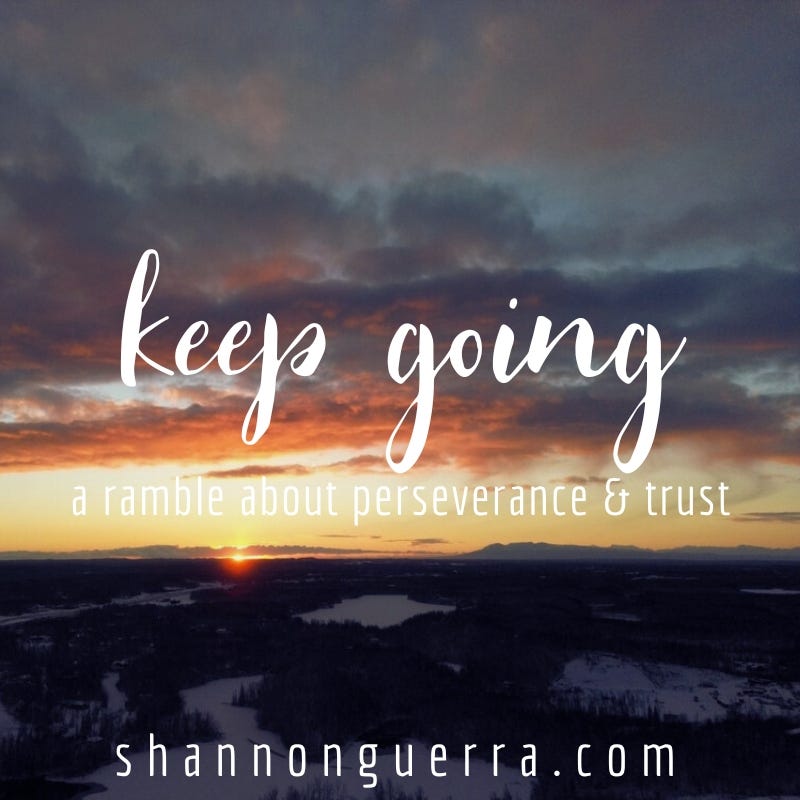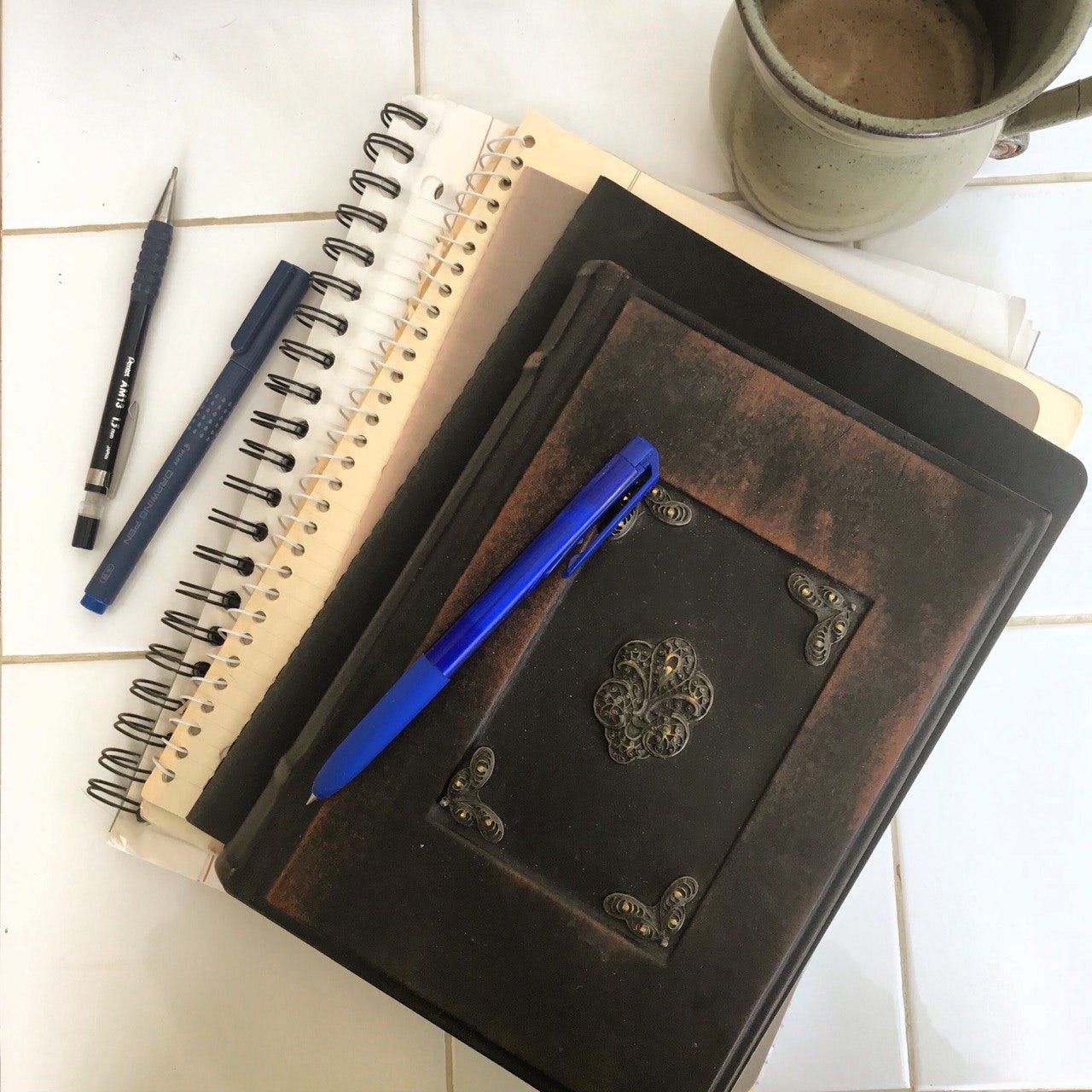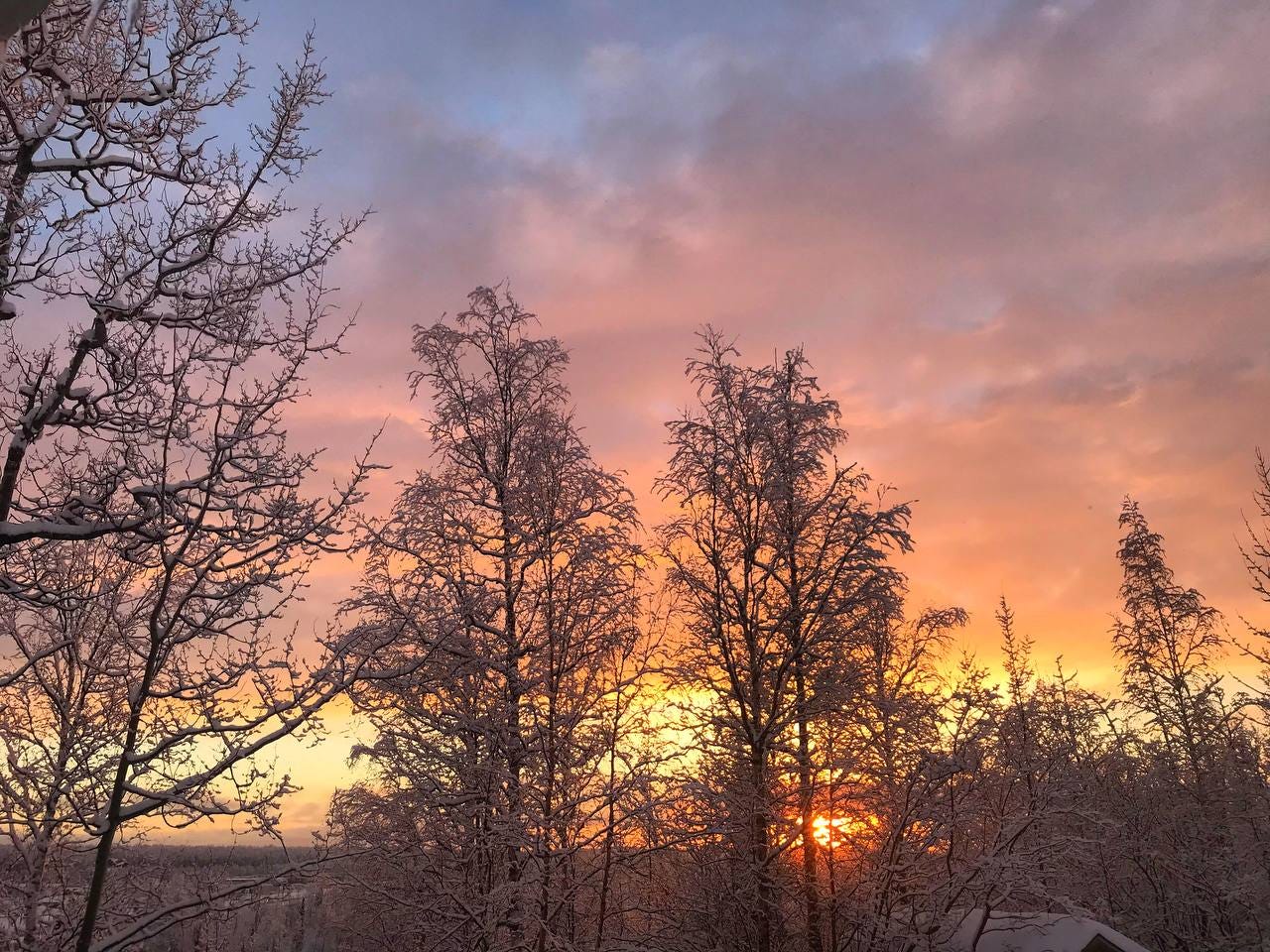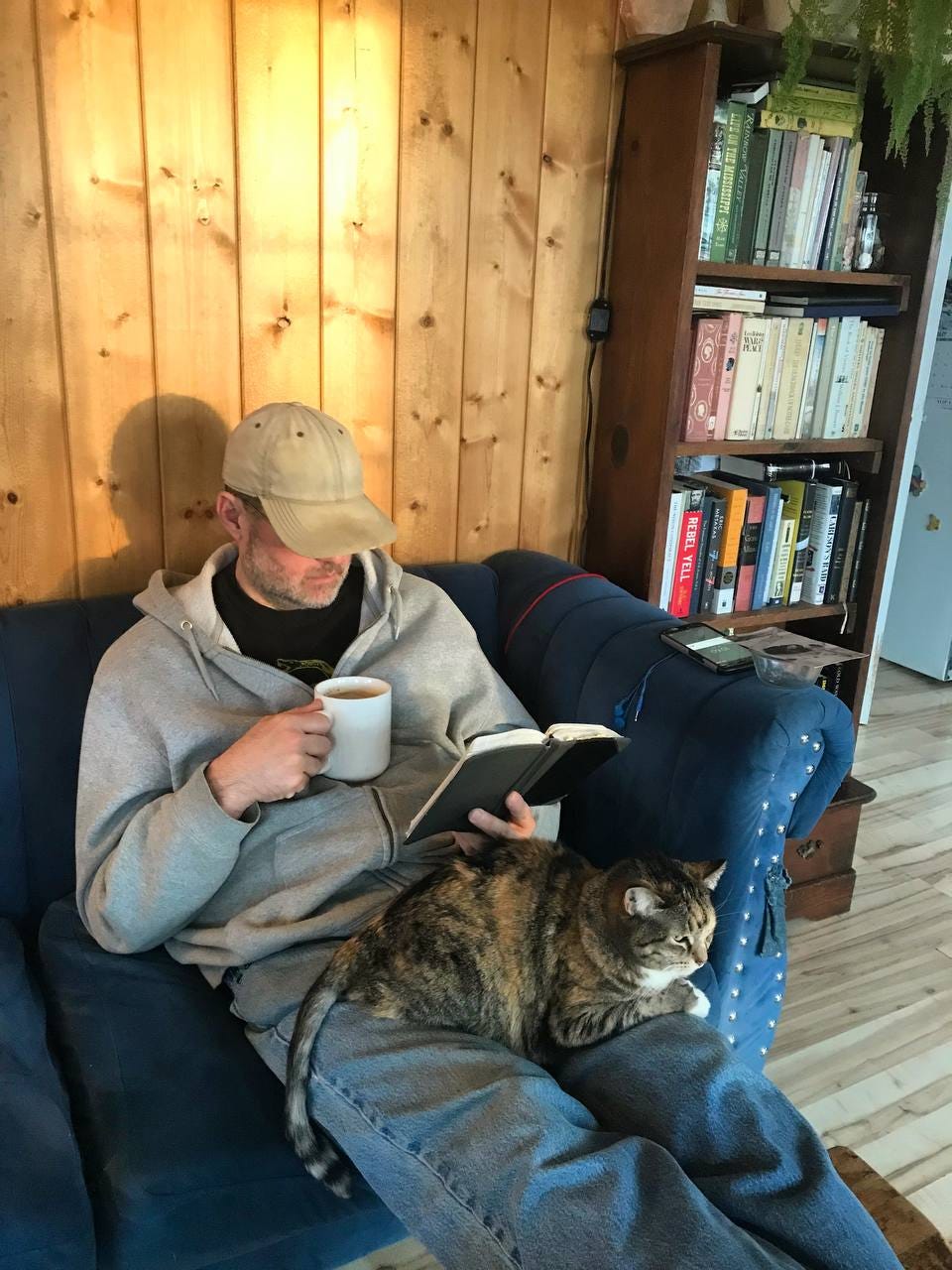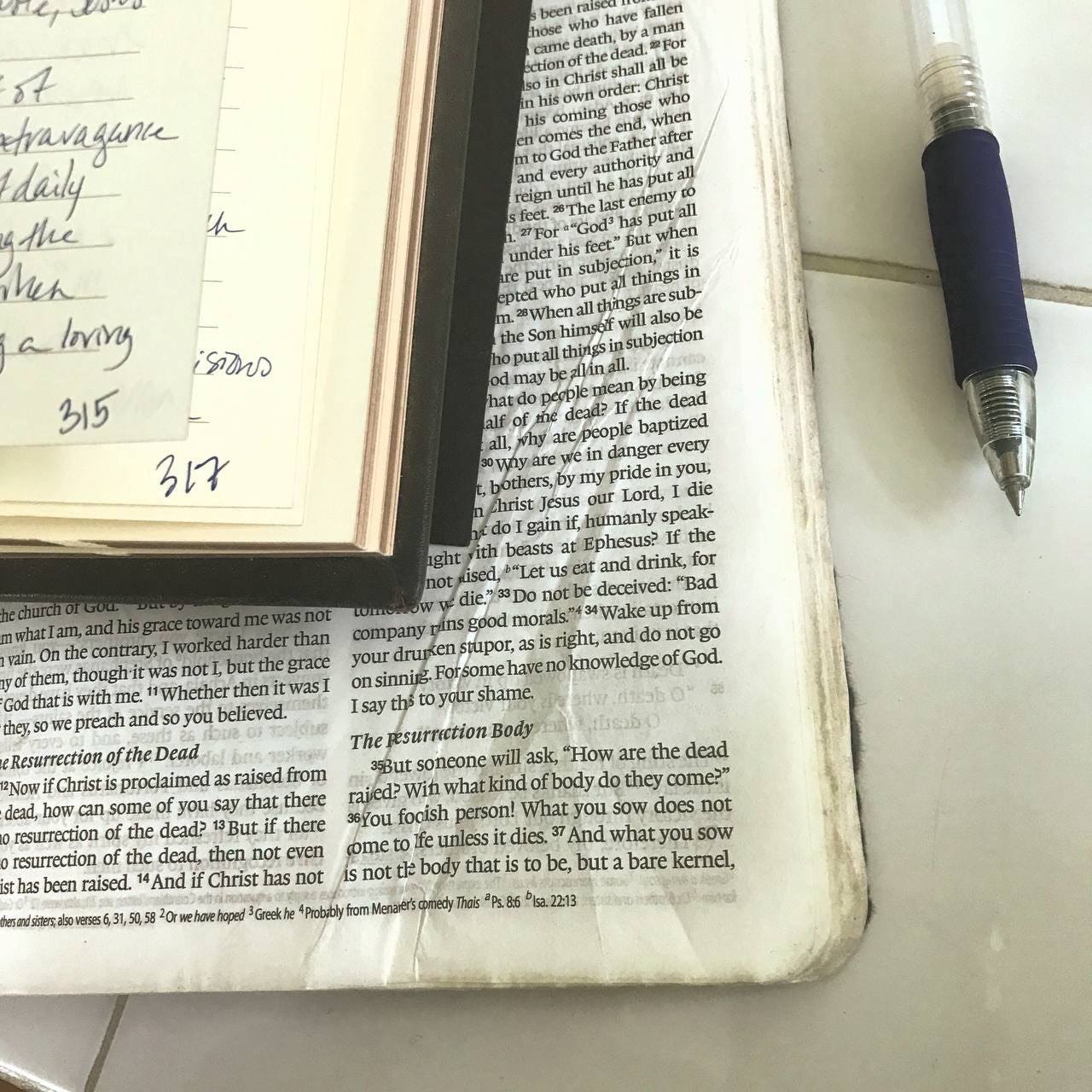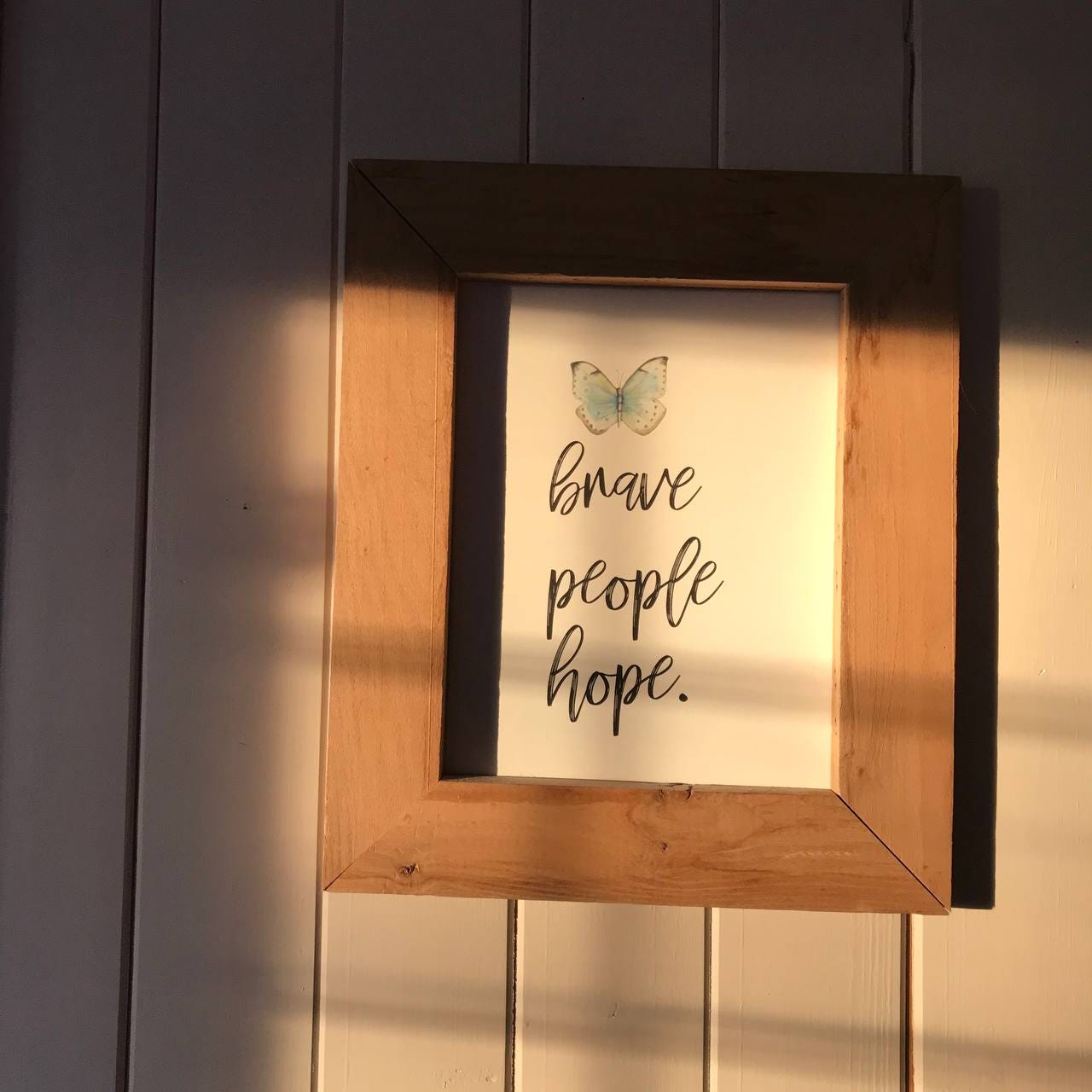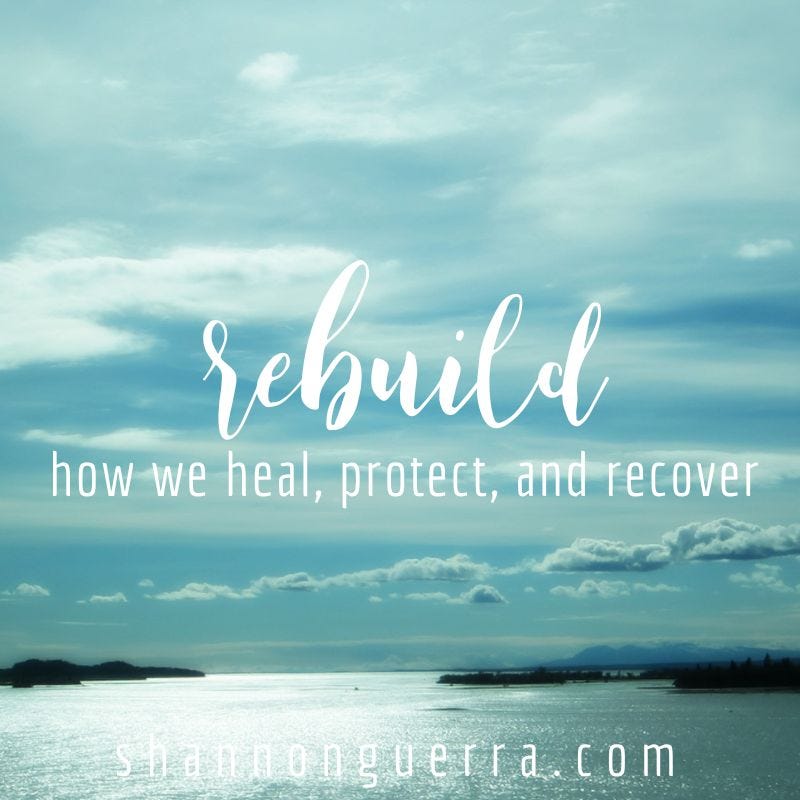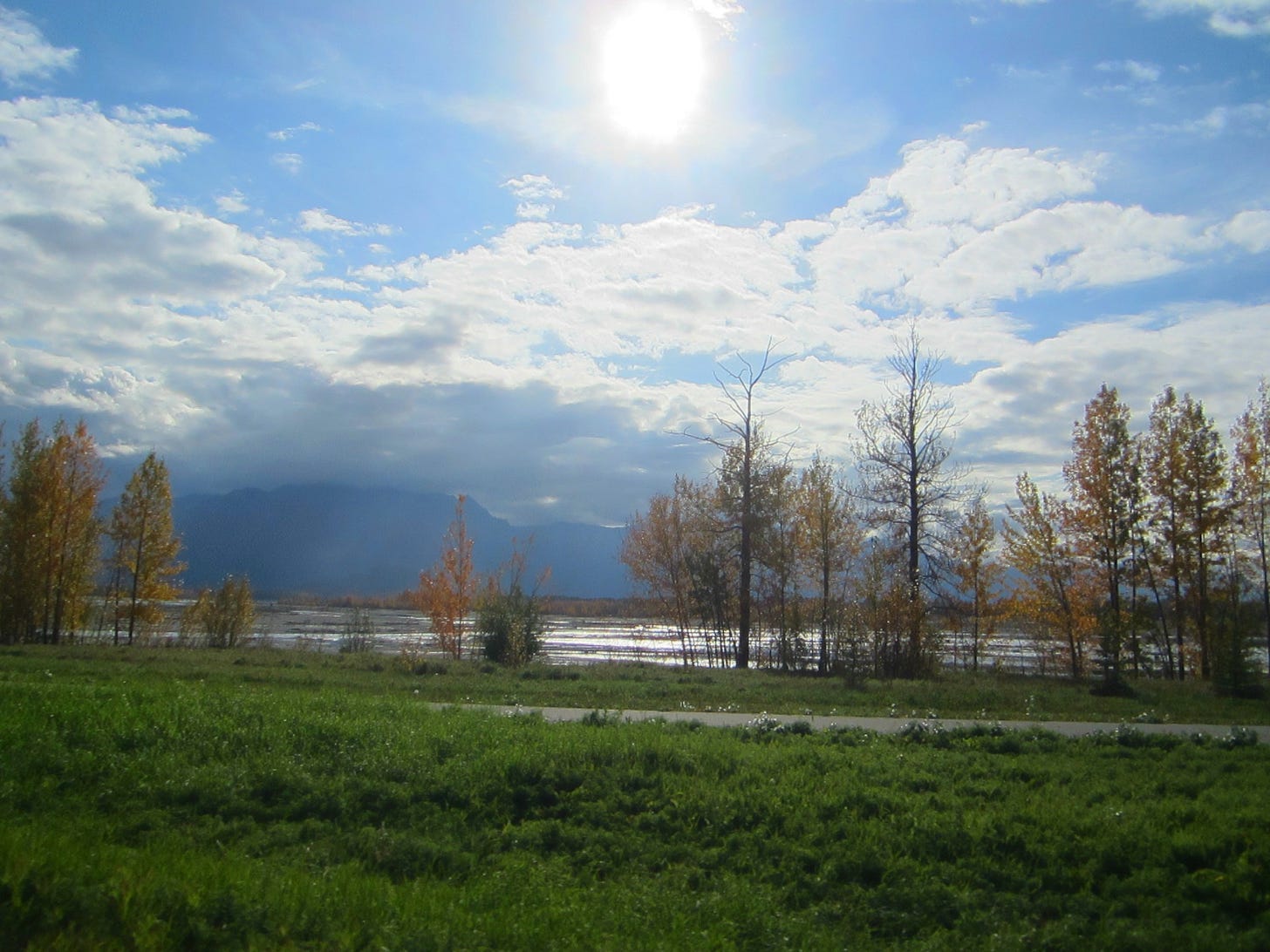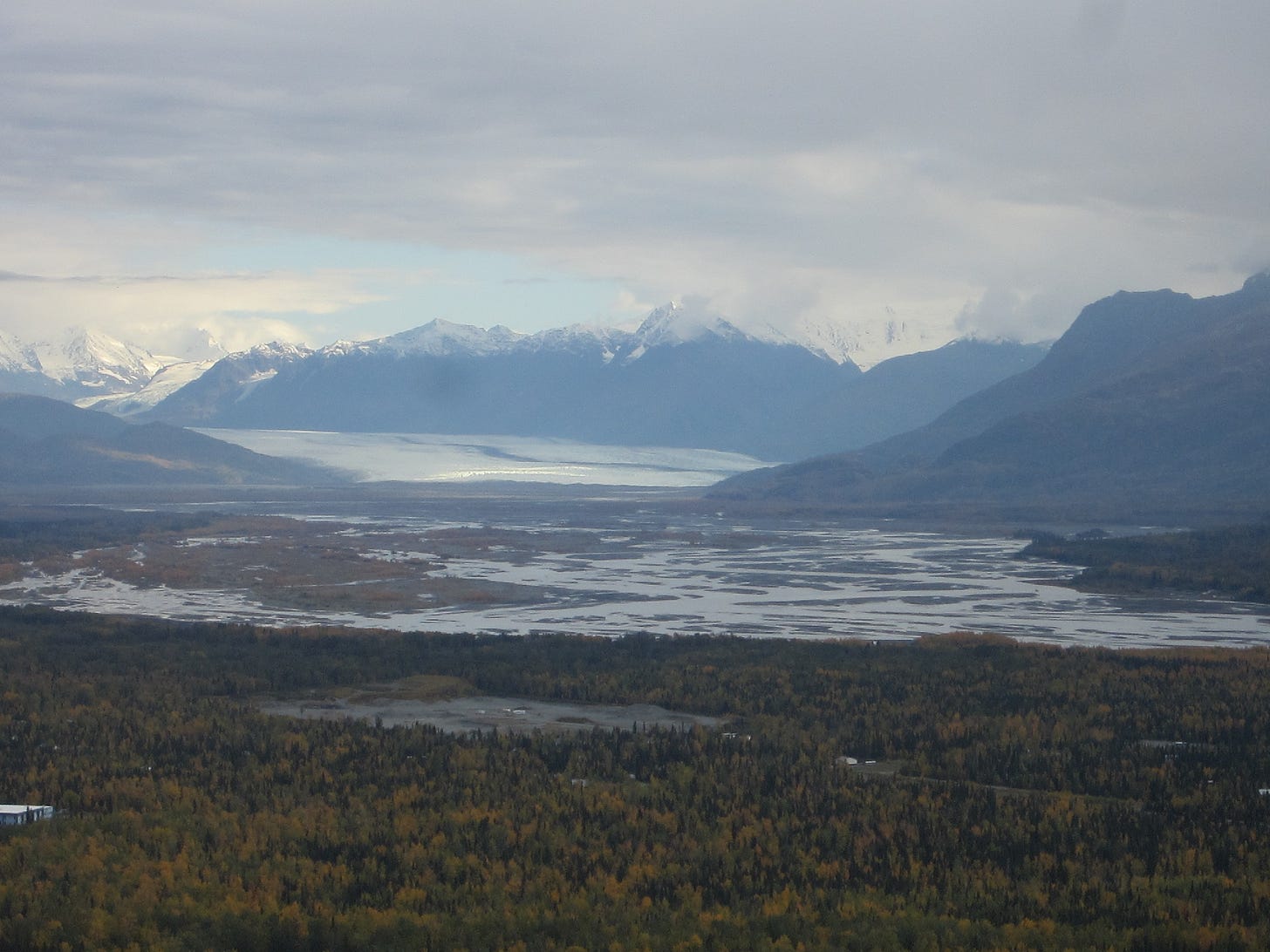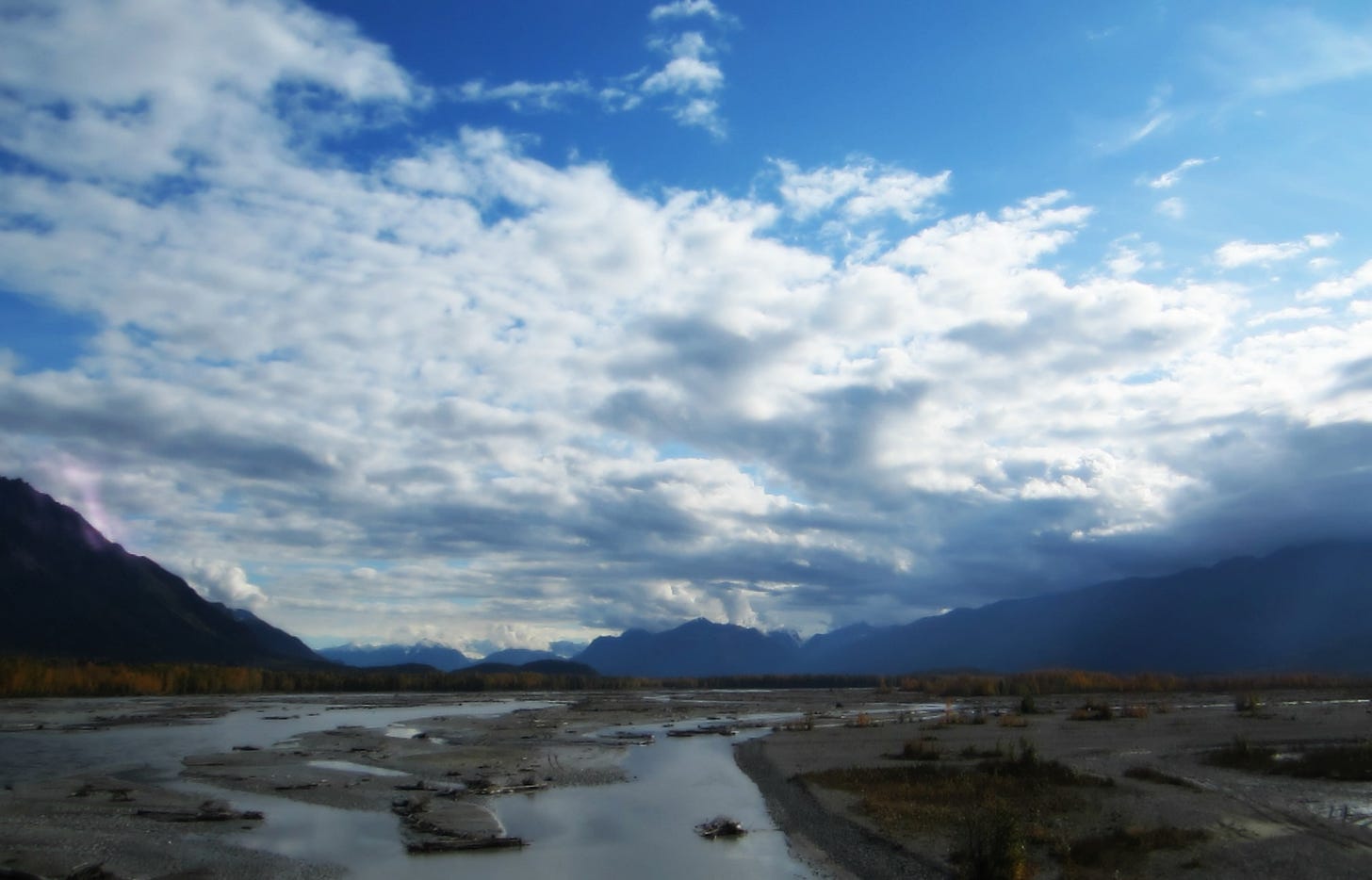I sat at one end of the couch, and our six-year-old with his pink cheeks was at the other. Our nine-year-old had the other couch, and both were banked by coffee tables littered with half-empty beverages.
Up too early with two feverish boys, trying to keep myself healthy and hydrated on only four hours of sleep, I remembered how just in the last post I said my mind was ambitious but my body said no, take a nap. And I wondered if this day would be the same but for different reasons.

I had just written about limitations, so I guess it was fair that I got to relive it: Limits force us to focus. I could only reach my end of the coffee table, which held my tea, planner, bible, book for class, a scripture verse on a slip of paper, and The House of Seven Gables, all of which I’ve been working my way through.
That sounds productive, but I spent plenty of time just staring blankly out the window, watching the chickadees at the feeder and the cars on the highway. Also, I checked temperatures. Reminded Finn and Kav to drink their tea, and they made slow progress.
Both of the boys had a day – separately, though, praise God – when their fevers spiked high enough to peak with delirium and tachycardia, which is a fancy way of saying we could see their pulses tapping under the curve of their necks while they mumbled nonsense about ice cubes talking and the walls changing shape and color.
It was alarming, but twenty years of reading classic literature hasn’t been for nothing. Everyone who’s read Sense and Sensibility knows that Marianne raved incoherently before her fever broke, too.
So we kept their foreheads cool and let the fevers do their job. And they did, but when we thought they were finally on the mend, a new phase started with congestion and coughing, which didn’t seem fair because that’s not how it’s supposed to work. You’re supposed to get over whatever it is and move on with life, not just transition into a new form of sickness.
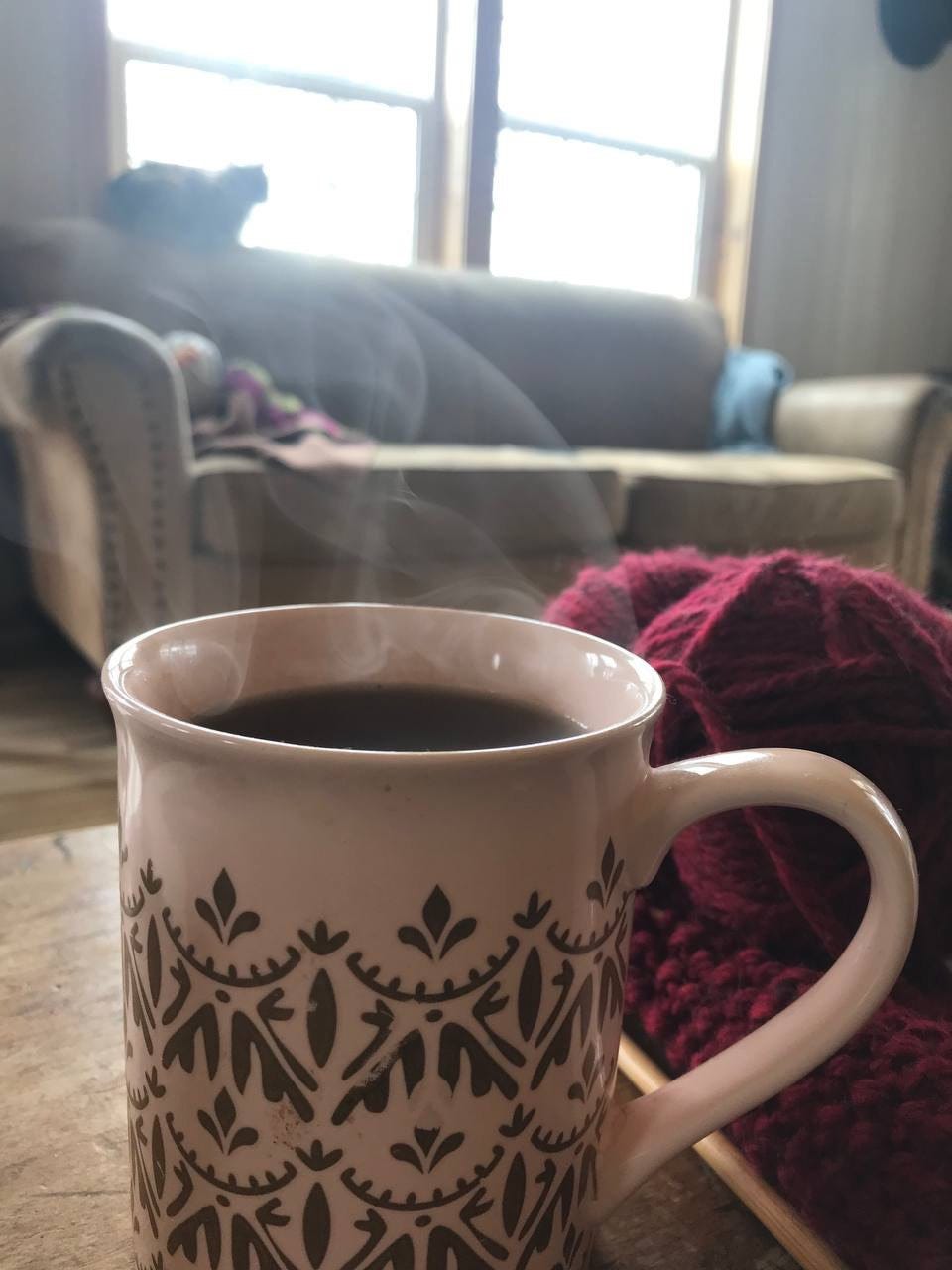
But no, two days later, both boys and I were all coughing and sniffling. Still drinking all the fluids and doing the right things, but also, still working our way through whatever it was. My head hurt when I turned too fast to look left or right, but I mostly felt fine as long as I didn’t do anything ambitious like leave the couch.
Sometimes we think we’re making progress, but then we suddenly realize there’s so much more ahead than we had anticipated. And it doesn’t feel like progress anymore; it feels more like discouragement, or even defeat.
He sees you when small steps forward cause you to grieve, because it seems like they ought to be bigger steps forward by now…or they ought not to have been needed at all because the circumstances should never have happened.
You’re not in trouble for having mixed feelings over progress that restores the regress of hard situations.
It’s okay to be both grateful for the progress and grieved over its necessity.
He is doing something in both the grief and the gratitude.
I gathered the empty cups and crumpled tissues, thought about the work that would need to be set aside for another day. Wondered how long it would last, and how much I wasn’t going to get done this week.
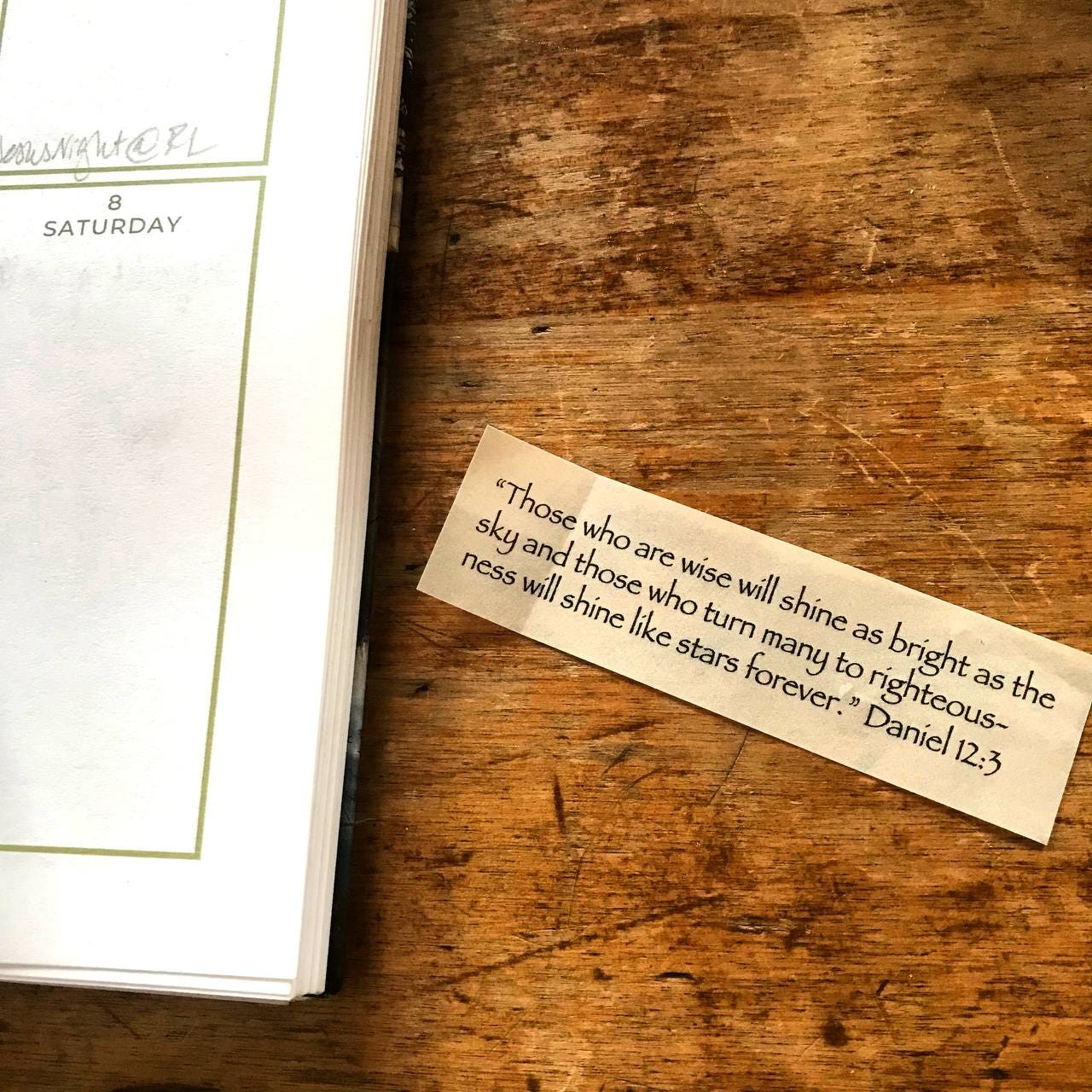
And then I heard the Lord say, What if this isn’t sickness, but immunity?
Because that’s what perseverance and grit develop.
Wait for the Lord and keep to his way,
and he will exalt you to inherit the land;
you will look on the destruction of the wicked.– Psalm 37:34
When we learn to focus and persist in the task that’s right in front of us, we protect ourselves from a lot of the drama and distractions in our periphery. We’re not necessarily unaware, but we’re on a mission.
(Like right now, she typed, ignoring the cat who repeatedly walked across her lap, meowing for attention.)
Being stuck on the couch with sick kids is not all that different from being stuck on the couch nursing a baby, which is how I’ve spent almost eleven years of my adult life. Those were the short years filled with long days; different couch, but the same coffee table. Those slow days taught me to steward what was in reach no matter how chaotic everything else out of reach was – drink the water, read the book, memorize the verse. Look out the window, observe and pray.
And this, too, is progress.
Be still before the Lord, and wait patiently for him;
do not fret over those who prosper in their way,
over those who carry out evil devices.– Psalm 37:7
A few weeks ago one of our pastors said the difference between persistence and stubbornness is the direction you’re going, and that’s familiar because we’ve talked about holy stubbornness for a looong time.
Things don’t always go the way we want, but when we practice patient self control, playing it cool, we look like Jesus because we’re doing what He did. The Bible, of course, doesn’t say He “played it cool;” it uses phrases like divine forbearance...but the essence is the same. We, too, are looking past the wrongs and trusting Him to bring things right as we press on in the face of less than ideal circumstances.
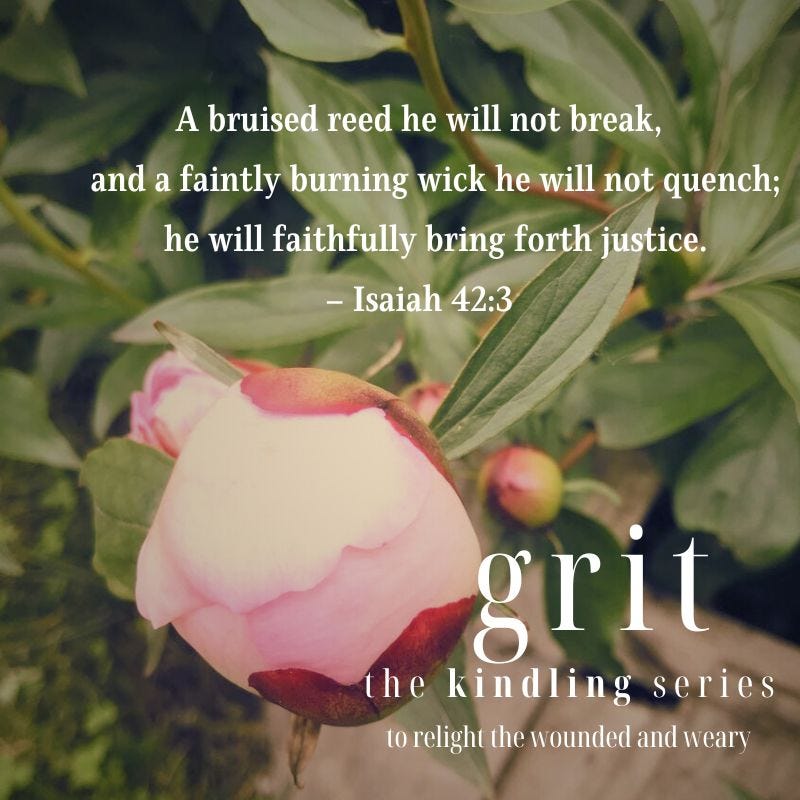
We’re doing what needs to be done, no matter how humble or ugly or unimpressive it seems. We’re pressing forward through the obstacles. And we’re letting go of the things out of reach, out of our jurisdiction and control.
We’re (a)biding our time in gritty surrender.
Our steps are made firm by the Lord
when he delights in our way;
though we stumble, we shall not fall headlong,
for the Lord holds us by the hand.– Psalm 37:23-24
I didn’t want the kid to make that choice, I didn’t want to have to prune that relationship, I didn’t want that to happen. But it’s less about what we want, and more about how we respond once we see things as they are: Will we look to Him? Will we sit at His feet? Will we trust Him and forge ahead, however we’re able?
…let us also lay aside every weight and the sin that clings so closely, and let us run with perseverance the race that is set before us, looking to Jesus, the pioneer and perfecter of faith, who for the sake of the joy that was set before him endured the cross, disregarding its shame, and has taken his seat at the right hand of the throne of God.
– Hebrews 12:1b-2
We are image bearers, becoming Who we behold even (especially) when it’s not easy to keep our focus. Like Mary of Bethany, who defied all kinds of opposition – including her closest family member and the cultural expectations of the day – to enter a room of men (scandalized gasp!) in order to sit at Jesus’ feet and learn from Him. She defied religious norms just like she’d seen Him do, and whenever she was attacked, Jesus came to her defense.
Mary was mantled with authority because of her grit.
The Lord helps them and rescues them;
he rescues them from the wicked and saves them
because they take refuge in him.– Psalm 37:40
Another thing we talked about in church recently was the process of refining gold. My friend who has personal experience with this pointed out that when gold is refined, impurities are removed – which means the weight is reduced but the value is increased.
I must become less, He must become more…so we make space for Him to move, and give permission to Him to refine us.
Friend, if you are in a hard spot, do you see how He is letting you in to see the inner place, where most people aren’t willing to go? He’s showing you the place in His heart where He also went through change that felt like loss. Betrayals, misunderstandings, moves, and new directions. Rejection, people changing, culture shifting.
And He’s not wasting any of this.
…we boast in our hope of sharing the glory of God.
And not only that, but we also boast in our afflictions,
knowing that affliction produces endurance,
and endurance produces character,
and character produces hope,
and hope does not put us to shame,
because God’s love has been poured into our hearts through the Holy Spirit that has been given to us.– Romans 5:2b-5
You know that one area that you’ve struggled with for so long – the one you’ve confessed and repented and prayed and changed habits for, but the battle is in the mind and you’re still at war, wondering if you’ll ever see victory. Wondering if things will ever change.
What if you started seeing yourself in that situation from God’s perspective? What if you saw it as He sees it now: after the resurrection, after death and hell have been defeated?
What if you stopped seeing yourself as bad at handling this situation? Because we fight from victory, not for it.
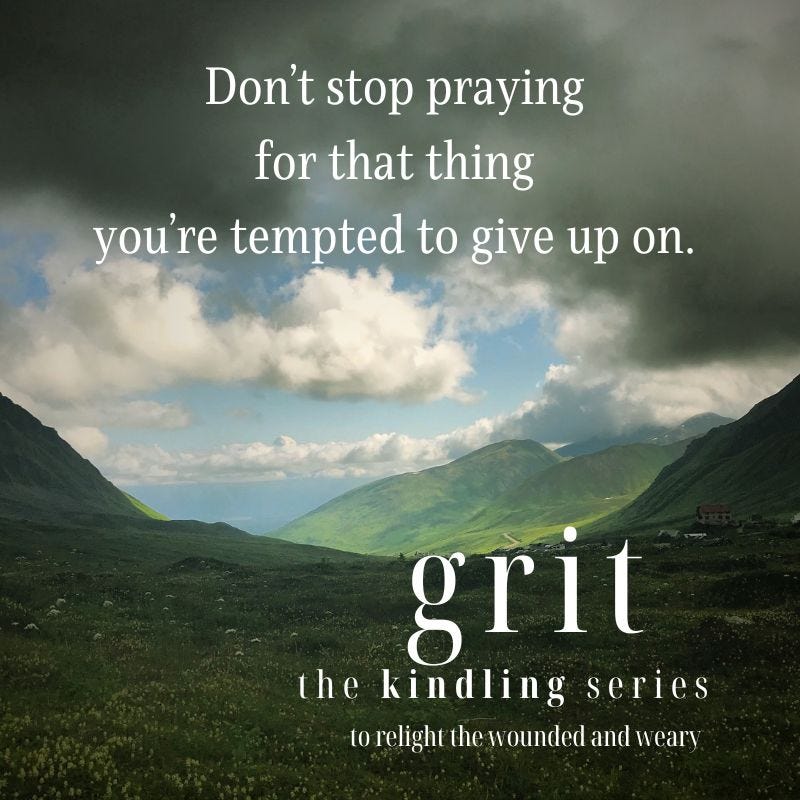
Much of the enemy’s game is just bluffing and confusion. He wants to convince us to agree with him that this is just how it is, this struggle is our “cross” (ooh, he’s good at twisting scripture!), and we just aren’t spiritual enough to figure this out yet.
But if we agree with God and know that we have been given every spiritual blessing in the heavenly places, including the authority to trample the enemy to pieces, we’ll look at it (and ourselves) differently.
We’ll know this is a work in progress but that God is making the progress, and our situation was never hopeless.
We aren’t bad at dealing with it. We just haven’t seen how good we are at conquering it yet.
No, in all these things we are more than victorious through him who loved us.
— Romans 8:37
In difficulty, opposition, or loss – or sickness or frustration or lack – we can choose to forge ahead, even when we’re sitting still. We’re not looking at this through fear’s lens anymore, focusing on the negative possibilities. We’re not looking through defeat’s lens, feeling like it’s over too soon and we blew it.
No, now we see through victory’s lens: abiding, watching it play out, not responding with knee-jerk reactions, but making deliberate moves in trust, confident that the Lord is at work, and He’s giving us the wisdom we need for our work, too.
What will we do when there’s so little within reach? Will we build even when our resources are limited and the materials aren’t ideal? Will we keep going even when the way is more uphill than we expected?
As we look to Him, we start to see like He does, too, and our perspective changes. So…what if this situation isn’t what it looks like? He’s teaching us to be alert, and to recognize that some things are not just what they seem.
What if it’s not really sickness or hardship or loss? What if it’s actually protection and preparation and provision?
It’s not sickness, it’s immunity — this situation isn’t taking from our lives, but adding to it. With the right perspective and gritty surrender, it’s gain, not loss. It’s adding steel to our spines, integrity to our intentions, wisdom to our experience, strength to our mind and character, and the ability to withstand.
Because slow progress is preparation, not punishment. Every time we trust Him, we protect our path forward. So much is happening that we can’t see, and God is doing miracles in us in the meantime as we look toward Him.
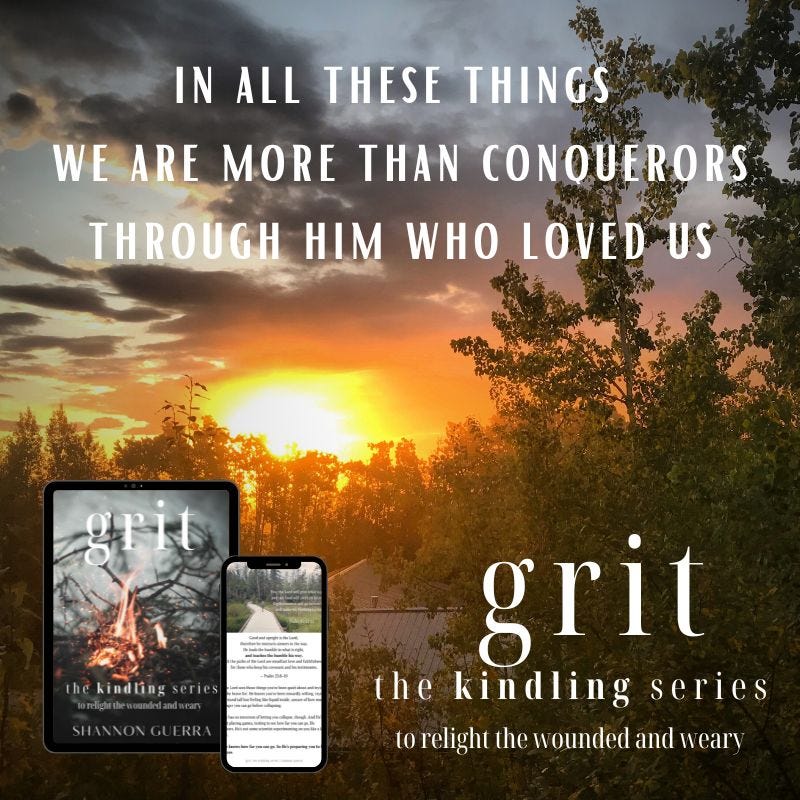
This is now available if you’ve been burned out or discouraged, and need some fuel for your calling. Grit is the first in the Kindling series — short, powerful, beautiful books to help relight you. Just $7 for the instant download, and you get both the full-color version and the black & white printable version, too. xo

